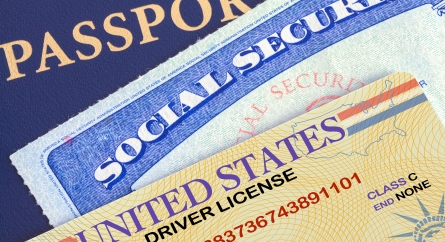Client Alert: EEOC Issues Guidance on COVID-19 and Disability Protections Under the Americans with Disabilities Act
The U.S. Equal Employment Opportunity Commission (EEOC) issued new guidance on Tuesday, December 14th, clarifying under what circumstances COVID-19 may be considered a disability under the Americans with Disabilities Act (ADA).
Under the ADA, employees are entitled to a reasonable accommodation when their disability requires it, unless the requested accommodation would be an undue hardship for their employer. The EEOC’s new guidance recognizes that COVID-19, like other medical conditions, may constitute a “disability” under the ADA in one of three ways: “actual” disability (i.e., physical/mental impairment that substantially limits a major life activity); “record of” a disability (i.e., the person has a history or “record of” an actual disability); and “regarded as” an individual with a disability (i.e., a person is subject to adverse action because of an impairment or a perceived impairment by the person’s employer).
In assessing whether a person with COVID-19 has an actual disability, the EEOC requires the same individualized assessment required for all medical conditions under the ADA. Namely, looking at whether the “physical or mental” impairment is one that “substantially limits one or more major life activities.”
The EEOC offered several examples that can help guide employers. For instance, employees who are asymptomatic or who have mild COVID-19 symptoms (e.g. fever, sore throat, headaches, etc.) that resolve in a matter of weeks are not considered to have an impairment that substantially limits a major life activity, and therefore, do not have an “actual” disability.
However, an employee diagnosed with COVID-19 may be considered to have an “actual” disability if the effects do substantially limit a major life activity. The EEOC provided the following (non-exhaustive) list of circumstances related to COVID-19 that would meet the definition of a disability under the ADA:
- An individual with ongoing but intermittent multiple-day headaches, dizziness, brain fog, and difficulty concentrating/thinking;
- An individual initially requiring supplemental oxygen for breathing difficulties and having shortness of breath, associated fatigue, and other virus-related effects that last, or are expected to last, for several months;
- An individual who is experiencing heart palpitations, chest pain, shortness of breath, and related effects due to the virus that last, or are expected to last, for several months;
- An individual diagnosed with “long COVID,” who experiences COVID-19-related intestinal pain, vomiting, and nausea that linger for many months.
Further, the EEOC notes in a useful reminder to employers that employees also are protected from discrimination in situations where an employer “regards” them as having a disability. Relative to COVID-19, an employer could face legal exposure if, for example, they subject an employee to an adverse action (e.g. being fired or not hired) because the employer mistakenly believed the employee had COVID-19. For this definition of disability, it does not matter whether the impairment (actual or perceived) substantially limits or is perceived to substantially limit a major life activity.
Moreover, the EEOC notes that employers risk violating the ADA if they prevent employees from returning to work once they are no longer infectious, and therefore medically able to return to work without posing a direct threat to others, if such decisions rely on myths, fears, or stereotypes about a condition.
Finally, even in situations where an initial case of COVID-19 does not constitute a “disability,” an employee’s COVID-19 may result in causing impairments that themselves are disabilities under the ADA. For example, an employee who develops heart inflammation, suffers a stroke or develops diabetes as a result of having COVID-19 may become protected by the ADA. This is another good reminder for employers that side effects of medical conditions may themselves be disabilities even though the initial underlying condition was not.
Key Takeaways for Employers
- Employees must meet the definition of an “actual” or “record of” disability to be eligible for reasonable accommodation(s).
- Eligible employees are not automatically entitled to a reasonable accommodation unless their disability requires it and it would not pose an undue hardship on the employer.
- When an employee requests a reasonable accommodation related to COVID-19 (or any other potential disability), the employer may request supporting medical documentation before making its determination.
- Other ADA protections, such as those related to medical inquiries, confidentiality, retaliation and interference, apply to all applicants and employees, even if they do not meet the criteria for an ADA disability.
Please contact your Bowditch employment and labor lawyer with any questions.
Categorized: Client Alerts, Publications
Tagged In: COVID-19, Americans with Disabilities Act










